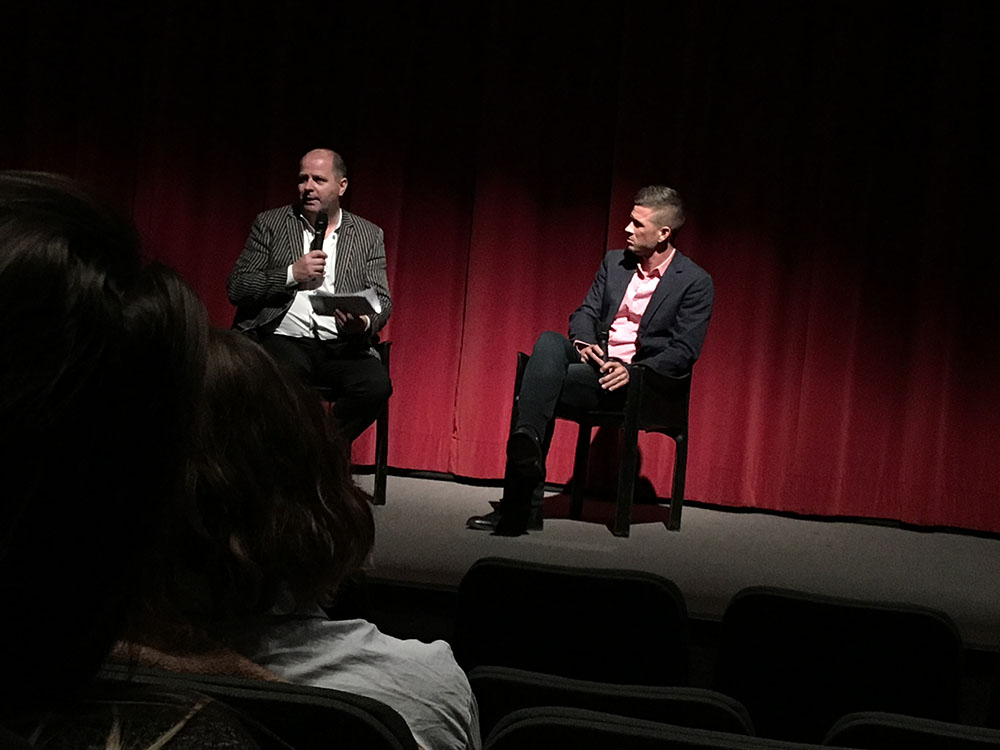
How much do we really know about drug abuse? Do we even realize that abuse or overdose can unsuspectingly start from the simple painkillers that we get prescriptions for from our doctors?
“People are dying of drug overdose in unprecedented number and most of these deaths are caused by what we call opioid drugs.”
That is the message that the heart-wrenching documentary, Painkiller: Inside the Opioid Crisis opens with, in an attempt to raise awareness to the painful reality that Canadians are facing about opioids, and that unfortunately, the hapless victims are even suffering from the stigma of an addiction that they may never have wanted in the first place. The message in this film-documentary is even put across more powerfully with true stories of Canadian families whose members survived the crisis, and from some whose family members did not make it.
Telus Health Originals’ initiative along this area debuts with this documentary, put together by ace director Mathew Embry and premiered recently in Toronto at the AGO Jackman Hall. The film is now available for public viewing in YouTube and the Telus Optik TV Healthy Living Network on Channel 346 in Western Canada; also on Telus.com website for all of Canada. A French subtitled version will also be made available.
“We are absolutely dealing with a crisis. The biggest thing is to acknowledge the crisis and put resources in evidenced-based ways into the things that are needed (to be done),” declares Dr. Evan Wood who is also Director of the BC Centre on Substance Abuse.
Opioids and the Substance Fentanyl
Painkiller: Inside the Opioid Crisis warns of the substance called Fentanyl that sadly can be found even in prescription drugs that medical practitioners give their patients to manage pains.
Dr. Patricia Daly, Chief Medical Officer of Vancouver Coastal Health declares, “These are classic drugs that have heroine, morphine (that) they put in some legal and illegal drugs. Most of the deaths occurring now are because of the contaminants of the illegal drug supply with drug called Fentanyl.”
Fentanyl substance is 50-100 times stronger than morphine. Dr. Daly reveals that “Because it is much more powerful and easier to import, much smaller quantity can go a long way in the illegal market.
” One thousand grams of Fentanyl is equivalent to 50 million lethal doses according to the documentary. Tiny quantities of Fentanyl can be lethal, the documentary says.
Author and Addiction Expert, Dr.
Gabor Mate adds, “Because of the cheapness and availability of those killer drugs, a lot of people are dying. While Dr. Wood noted that “One to five people prescribed with an opioid will become a long-term user in 10 days.”
What are opioids? Opioids are drugs that give morphine-like effects. They work on the nervous system, and primarily used for pain management. Scary enough, continued use of opioids can result in physical dependence and even withdrawal symptoms.
Dr. Wood laments that the opioid crisis is “The worst public health emergency we’ve ever had.” In 2016, there were 2,816 opioid-related deaths reported in Canada. This rose to nearly 4,000 cases in 2017, or a whopping 40% increase in just one year.
A figure that can really be alarming.
Where Do We Go From Here?
“People need to wake up,” warned Dr. Ron Abrahams, Medical Director of Perinatal Addiction, BC Women’s Hospital and Health Centre. While Chief Constable Bob Rich of Abbotsford Police Department in British Columbia shares, “Every family should talk to their kids (about this).” One experiment with this drug can lead to death, and relapses pose even higher risks of deaths.
And in the midst of this sad reality happening, the cry of some sectors like the Moms Stop the Harm movement is to stop the stigma on addiction and for the society to start looking at this problem as a health issue. That society will believe that drug addiction of this nature is not a criminal offense and the victims, thus, are not to be frowned upon as criminals.
“If I were to run the show right now, like Portugal, I would decriminalize every drug,” staunchly declared Dr. Ron Abrahams. Dr. Patricia Daly is in agreement. Dr. Abrahams also hopes that these patients “should be able to comfortably walk into their doctors’ offices, speak about the trauma and not be judged.”
Author-doctor Dr. Gabor Mate couldn’t have put it more perfectly when he said, “There is HOPE for something happening in the future. But there is something stronger than hope – there is POSSIBILITY. Possibility exists in the present moment. We wake up in the present moment. Let us look at what’s possible right now.
Aptly, Painkiller: Inside the Opioid Crisis leaves everyone in the audience during the Toronto screening, with three (3) simple admonitions – Start a Conversation. Be Compassionate. Let’s End the Stigma of Addiction.
TELUS pushes the envelope further by offering to donate $5 for every view of the documentary, or up to $50,000 additional funding to TELUS Health for Good which runs the Telus Mobile Health Clinics. These mobile clinics have been working to provide dignified and quality healthcare to Canadians since it was first set up in Montreal four (4) years ago.
To request for public screening of the beautiful documentary, simply contact consumerhealth@telus.com.